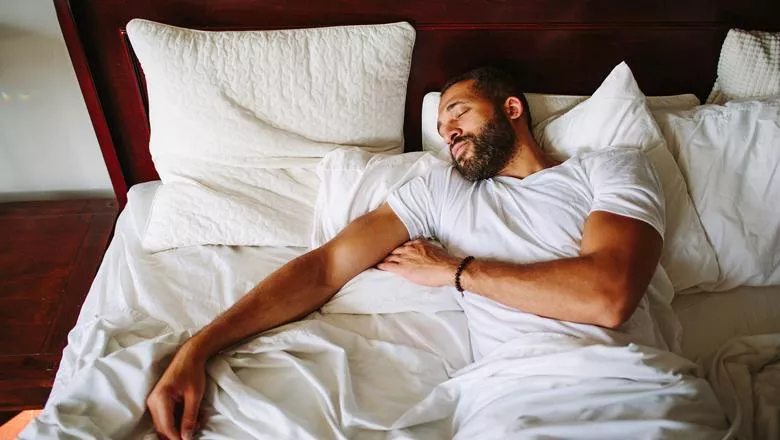"This study shows a clear association between COVID-19 infection and fatigue and sleep problems. The next research steps will be to explore mechanisms of such associations and targeted interventions."
Prof. Trudie Chalder, Professor of Cognitive Behavioural Psychotherapy at King's IoPPN
17 November 2021
Researchers confirm link between testing positive for COVID-19 and fatigue and sleep problems
Those who tested positive for COVID-19 (confirmed by a PCR test) had an increased risk of mental illness, fatigue and sleep problems, finds a new study which analysed the electronic primary care health care records* of 226,521 people from across the UK

The research, published in JAMA Network Open, was funded by the National Institute for Health Research Greater Manchester Patient Safety Translational Research Centre (NIHR GM PSTRC). The Centre is a partnership between The University of Manchester and The Northern Care Alliance NHS Foundation Trust.
The study found there was an almost six-fold increase in the likelihood of reporting fatigue to a GP following a positive PCR test and a threefold increase in the risk of sleep problems compared to those without a positive test, for people who haven’t previously visited their GP for any of these reasons in the past.
There was also an 83% increase in mental illness following a positive PCR test. However, there was also a 71% increase in the risk of mental illness for people who received a negative PCR test compared to the general population. Researchers believe this throws some doubt about whether COVID-19 is directly causing mental illness, because it is clear that those who get a test are more likely to have risk factors for mental illness, for example pandemic-related anxieties.
Dr Matthias Pierce, researcher at The University of Manchester who led the work, said: “When we began this research project we wanted to investigate whether we could find any evidence in primary health care records that COVID-19 was linked to an increased risk of mental health illness, sleep and fatigue problems.
“While fatigue is clearly a consequence of COVID-19 the risk of experiencing sleep problems is also very high. However, we are sceptical regarding the extent that COVID-19 is directly causing people to become mentally ill, or whether those with a predisposition to mental illness are more likely to get tested.”
Professor Roger Webb, from The University of Manchester, who co-leads the Mental Health research programme at the NIHR GM PSTRC, said: “Our findings align with those generated by investigations conducted in other countries in revealing elevated risks of mental illness, self-harm, fatigue, and disrupted sleep patterns among people testing positive for infection during the pandemic. Establishing the mechanisms that have caused these outcomes to occur is the next major challenge for researchers in our field.”
Association of SARS-CoV-2 Infection With Psychological Distress, Psychotropic Prescribing, Fatigue, and Sleep Problems Among UK Primary Care Patients (DOI10.1001/jamanetworkopen.2021.34803) (Kathryn M. Abel, MD, PhD; Matthew J. Carr, PhD, Darren M. Ashcroft, PhD; Trudie Chalder, PhD; Carolyn A. Chew-Graham, MD; Holly Hope, PhD; Navneet Kapur, MD; Sally McManus, MSc; Sarah Steeg, PhD; Roger T. Webb, PhD; Matthias Pierce, PhD) was published in JAMA Network Open.
For more information, please contact Patrick O'Brien (Senior Media Officer)

